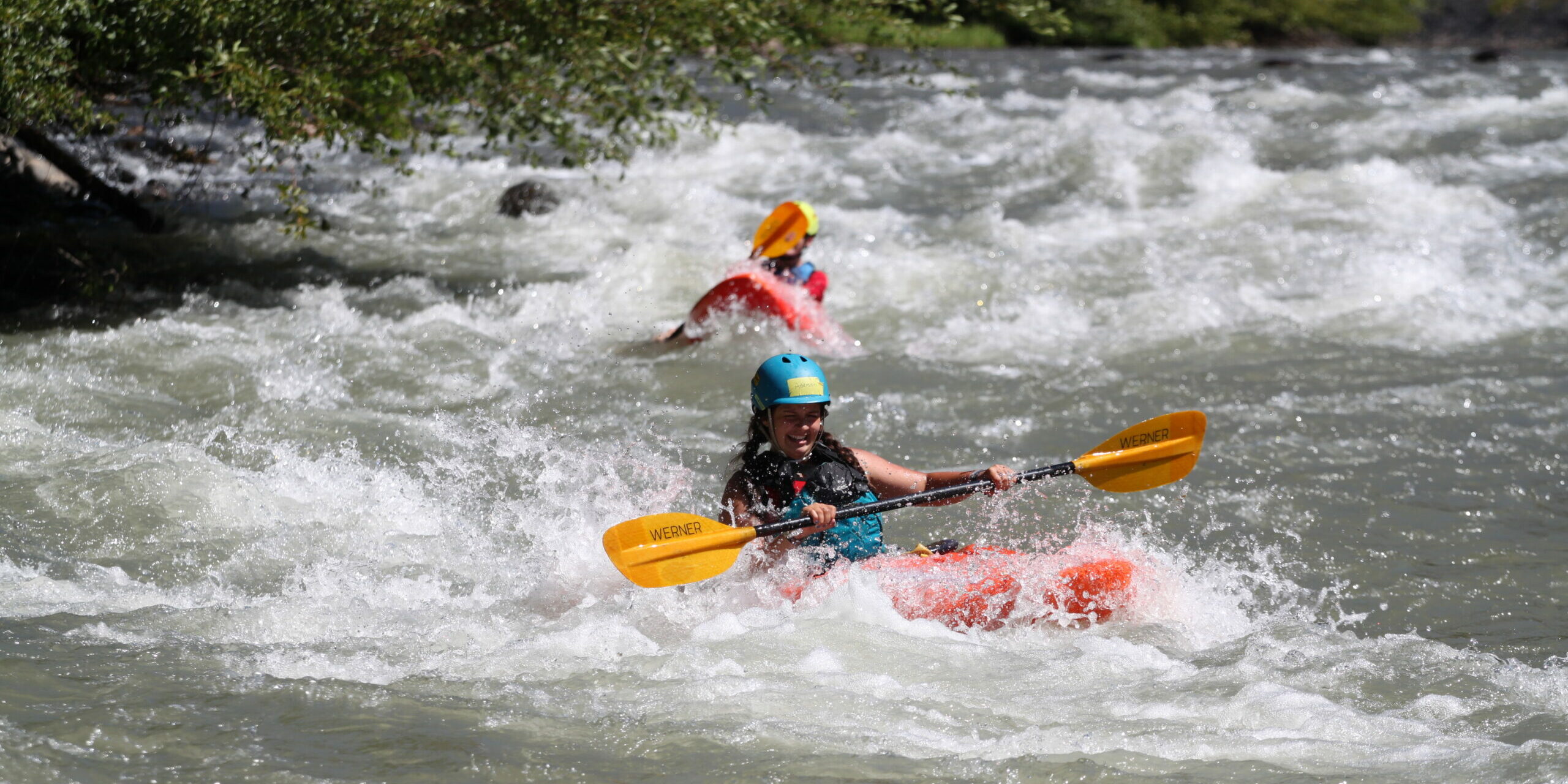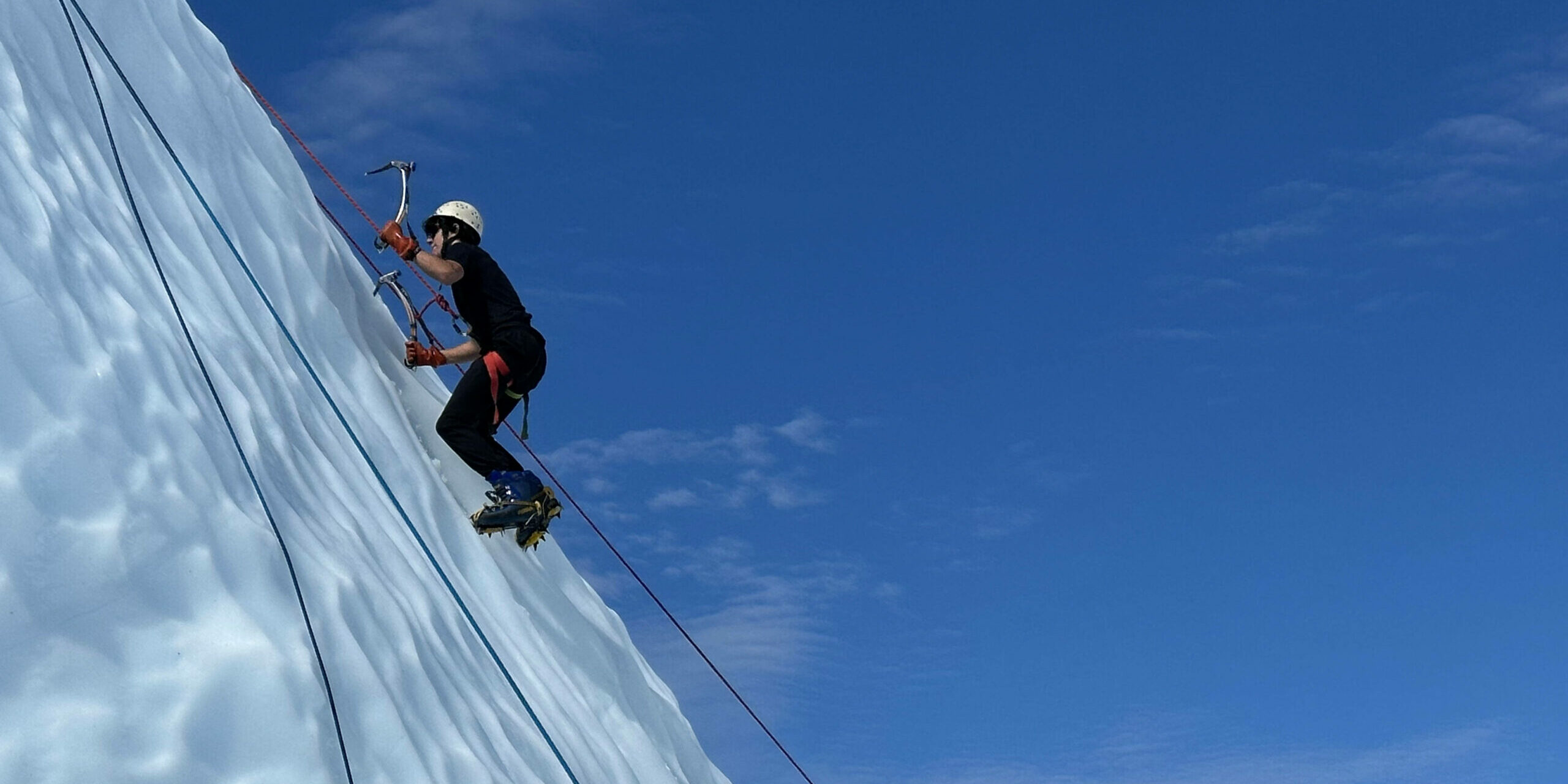Adventure Treks and the Battle Against Phone-Based Childhoods
I was reading through college essays the other day, shared by current and former Adventure Treks students who’d written about the impact their AT experiences (climbing Mt. Shasta, backpacking in Alaska, etc.) have had on their lives. I then came across an essay on letgrow.org by a student named Finn Fox. One quote in particular stood out to me: “We don’t know how to solve some of the biggest problems in the world today, but if we’re willing to be flexible, get lost a little, and accept failure as part of the process, we can create innovative solutions to complex problems. All we need is a mindset of exploration.”
Letgrow.org is a site dedicated to helping parents give their children some freedom to explore, play, and be kids without the distractions of phones, parental safety-ism (or “overprotection,” as some call it), social media, and other hindrances. This led me down the rabbit hole of blogs from the American Camp Association and a few recent articles from The Atlantic, including one titled “End the Phone-Based Childhood Now,” written by social psychologist Jonathan Haidt.
This article dives not into into current statistics about youth mental health, but also when studies started showing increases in loneliness and depression, while scores in reading and math began to decline. Though changes have been happening for decades, the real shift began in the 2010s when—you guessed it—smartphone use became more and more prevalent. And what came along with smartphones? Drastically higher rates of social media use.
One of the most interesting things I read in the Atlantic article: “Young people do not like their phone-based lives.” In fact, many young people are actually in favor of new laws regulating social media in kids and teens. He also refers to the 2021 Facebook debacle that showed that “teens blame Instagram for increases in the rates of anxiety and depression.”
“Once young people began carrying the entire internet in their pockets, available to them day and night, it altered their daily experiences and developmental pathways across the board. Friendship, dating, sexuality, exercise, sleep, academics, politics, family dynamics, identity—all were affected. Life changed rapidly for younger children, too, as they began to get access to their parents’ smartphones and, later, got their own iPads, laptops, and even smartphones during elementary school,” Haidt writes.
Essentially, it’s nearly impossible to escape the internet’s influence these days.
As someone who got his first cell phone at age 19, and a smartphone many years later, it’s staggering to take a step and think about Gen Zers who never had to get creative with contacting their parents or accessing the internet or figuring out a ride home from school. The younger generations have grown up with the entire world accessible 24/7 at their fingertips.
Research has shown that the younger generations—the kids with the “phone-based childhood”—are shyer and more risk-averse, and they’re even less likely than previous generations to get jobs as teenagers. Sam Altman, founder of OpenAI—arguably one of the most relevant technology products available today—said in an interview last year that he was surprised at how few young people dominate the tech scene in Silicon Valley today.
Side note and fun fact about Sam Altman: He is an Adventure Treks alumni!
Phone-based life and its implications
Haidt puts it simply: “Smartphone-based life, it turns out, alters or interferes with a great number of developmental processes.”
As a tech-driven society, we have stolen play-based childhood away from children and replaced it with phones. In the past, children had social groups to interact with, they had to be creative when they got bored, they were able to take risks and problem-solve. Now, they are connected to a screen of some sort at all times, without any guidance on what to do or where to go with it. Children are rarely afforded the opportunity to fail in low-consequence situations, leading to their unwillingness to go outside their comfort zones. Screens used as distractions for very young children deeply ingrains a habit that is incredibly hard to break.
Haidt says one of the most far-reaching consequences of a phone-based childhood is the dramatic decline in face-to-face social interactions, and the loss of developing communication skills in what he calls “embodied” interactions (using body language, gestures, facial expressions, etc.). Kids’ skills in “synchronous” interactions have also declined—that is, the ability to learn and read social cues in timing and natural conversation/dialogue. They are also less motivated to work hard to create meaningful relationships in online communities—instead, much more likely to “dispose” of a friendship after any kind of disagreement (rather than face conflict and practice coming to an understanding). There aren’t as many stakes with online friends whom you may never meet in person.
Parents have been trying to keep their children safe from the real world, while doing very little to protect them from the online world.” Children are kept indoors, with a device to occupy their time. They have access to an incredible wealth of information, content (both wholesome and harmful), and data. There are laws in place that should keep teenagers off social media sites, but getting around that only takes a few clicks or swipes. Once that happens, kids get to contend with the algorithms of billion dollar companies that feed on the insecurities of teenagers and build FOMO (fear of missing out).
How does Adventure Treks relate to all of this?
Our philosophy was built upon the concept of forming real, meaningful, genuine, and long-lasting relationships with peers and role models—friendships that lead to lifelong bonds that are not easily broken. As we always say, outdoor challenges bond people together like no other environment.
Our tech-free environment allows this to happen in real time, with those embodied and synchronous interactions in a community where everyone is valued. They can learn from others, embrace their differences, and celebrate each others’ strengths.
Kids’ lowered allowance for taking risks is an unfortunate outcome that cannot be overstated. Without a growth mindset—or one that’s not afraid to try new things and go out of the comfort zone and potentially fail—adolescence is severely stunted, leading to the inability to push and challenge oneself and learn and effectively self-regulate as adults.
Our trips take place in the great outdoors alongside experienced outdoor education instructors; they’re designed to allow students to not only take calculated risk, but to learn how to assess what risks are reasonable versus too risky—and to build a mindset well-versed in taking chances in environments where consequences aren’t too high.
Back to college essays and the “mindset of exploration”
All is not lost. In Finn Fox’s personal essay, he says his parents “just happen to believe that real world challenges are good for building problem-solving skills.” He expresses gratitude that his family allowed him to roam at the ripe age of 11 and build a sense of responsibility and independence.
His parents actually published his personal essay online because Finn sadly passed away from brain cancer before he could embark on his next adventures to university: “We’re sharing it in the hopes it encourages more parents to nurture and activate their children’s sense of exploration and independence.”
Finn had said, “I see the unknown as an adventure, something to go toward, not something to fear. The unknown to me as a kid was Chinatown in a city 30 miles from home. Now the unknown is the future. I can’t predict what comes next, but I trust that no matter what happens, it will be okay.”
Adventure Treks’ mission is to create the safest, most exciting, and most substantive outdoor summer adventures for teenagers through our personal attention to every student, our caring, and our competence. We hype our Great 8 Outcomes for a reason: kids who spend time outdoors, trying new things and pushing themselves while surrounded by good friends who genuinely care for them, are happier, healthier, and more well-adjusted, and become more confident, resilient, independent, capable, and optimistic people in the long run.
Let us help your child experience what it’s like to join an inclusive community of peers in gorgeous locations this summer!
[button url=”http://www.adventuretreks.com/enroll” target=”_self”] Enroll today! [/button]






